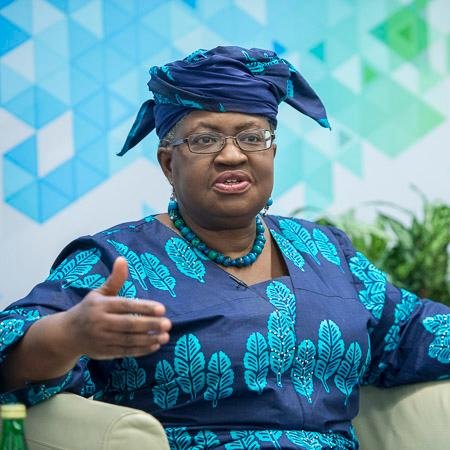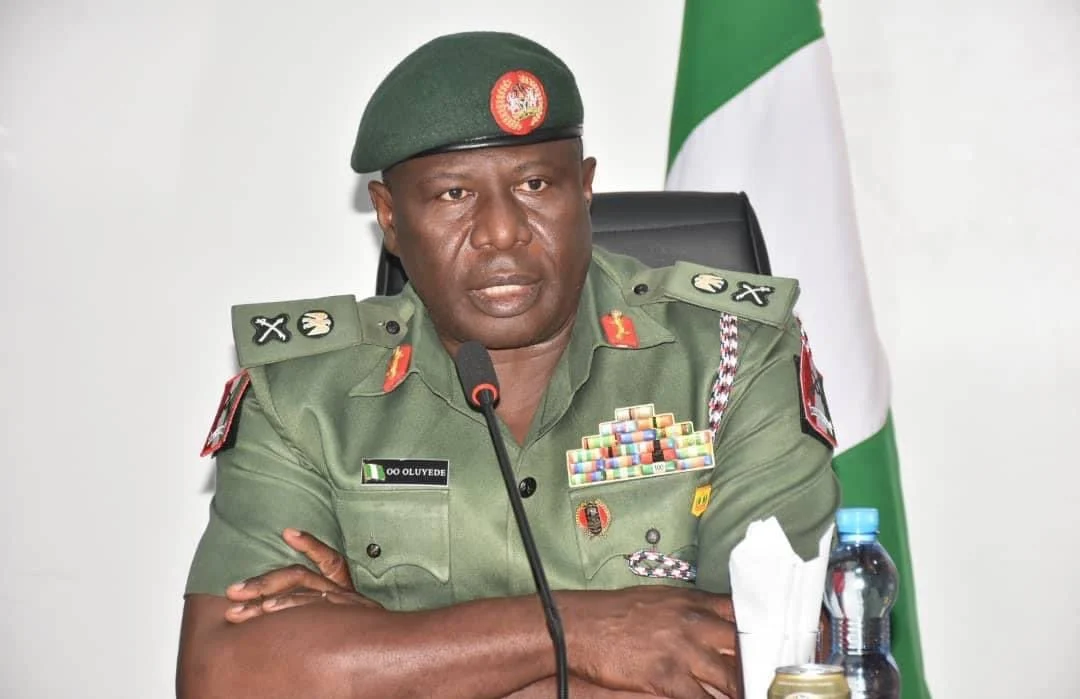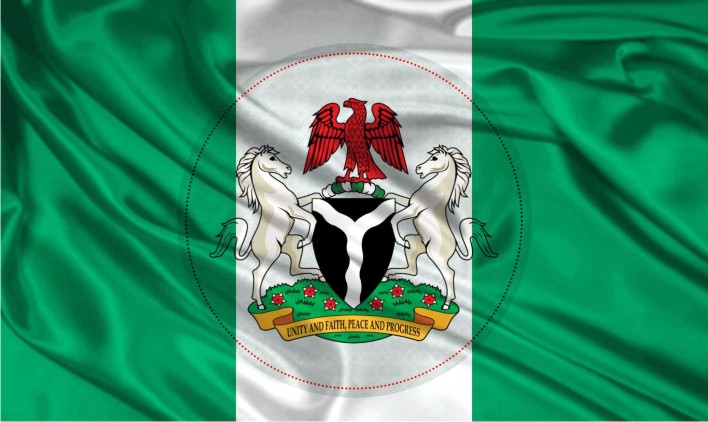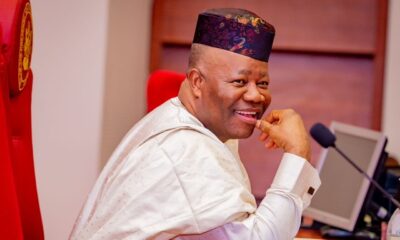News
FG Yet To Honour Agreement With ASUU
One year after the Academic Staff Union of Universities (ASUU) returned to classes after a protracted strike, the Federal Government has been accused of reneging on the agreement she reached with the lecturers before they called off of the strike.
Speaking during a press briefing yesterday on the one-year memorial of the killing of former ASUU leader, Professor Festus Iyayi, by the convoy of Kogi State Governor, Captain Idris Wada (retd), ASUU noted that one year after the agreement with the Federal Government, no government-owned university had received a dime from the N200 billion government said it had set aside for the revitalization of university education in the current year.
Chairman of Nnamdi Azikiwe University branch of ASUU, Comrade Dennis Aribidor, who briefed journalists alongside members of his executive and some senior members of the chapter lamented that the issues that prompted the strike were yet to be addressed in the universities and government had as usual, kept mum.
He said, “It seems Iyayi’s death opened the pandora box that suggests that ASUU’s relationship with government might seem irreconcilably hostile. While he fought for a just cause, ASUU is presently skeptical that he died in vain especially since the contention over honouring the ASUU-FG 2009 agreement, which cut his life short, is still far-fetched. This position is based on some hard truths. “No government-owned university (federal or state) has received funding to improve the teaching and learning conditions from the N200 billion earmarked for revitalizing of university education in 2014. No university (federal or state) has received money to pay arrears of earned allowances owed staff from 2009 – 2013 as agreed with government, apart from the 30 per cent released during the strike.”
Aribodor further said, “the most fundamental problem bedeviling the educational system in Nigeria is that it is located within a philosophical and political economic system which emphasizes personal self-enrichment and individual aggrandizement instead of emphasizing knowledge acquisition geared towards public good and national development.”
“Nigerian educational system is characterized by chronic underfunding, bad leadership, infrastructural decay, poor conditions of learning and service, promotion of mediocrity, shortage of personnel and entrenchment of orthodoxy, parochialism and chauvinism,” he stressed.
The ASUU boss insisted that ASUU would continue to reject “the ongoing systematic privatisation of education and selling off of public educational institutions. Education is a public good and should not be left in the hands of private individuals who are driven solely by profit motives.”
Also speaking, the Coordinator of the Owerri Zone of ASUU, Professor Ike Odumegwu accused government of frustrating efforts by ASUU to ensure that the killers of Iyayi were brought to book, saying, “The Federal Road Safety Commission, FRSC, took note of how Iyayi was killed, but nothing has been done. Our lawyers took the matter to court and it has been one adjournment after another.”
News
Adesina’s legacy source of pride for Africa — Okonjo-Iweala

The World Trade Organisation (WTO), has described the legacy of the President of the African Development Bank (AfDB), Dr Akinwumi Adesina, as a source of pride for Nigeria and the African continent.
The Director-General (DG) of the World Trade Organisation, Dr. Ngozi Okonjo-Iweala said this in a statement by the AfDB yesterday.
Okonjo-Iweala made the remark in a video message delivered to AfDB shareholders and delegates at the closing session of the Bank’s Annual Meetings held in Abidjan, Côte d’Ivoire.
The DG commended Adesina for what she called a decade of transformative leadership that significantly elevated the Bank’s standing and contributed meaningfully to Africa’s development agenda.
“President Akinwumi Adesina is leaving behind a strong legacy of leadership and service. Nigerians and all Africans should be proud,” the WTO chief said.
Recalling their time together in the cabinet of former President Goodluck Jonathan, Okonjo-Iweala noted Adesina’s pioneering efforts in agriculture, especially his introduction of the digital wallet system to empower women farmers.
“I challenged him to reach an additional one to two million women farmers, promising performance-based budget support. He delivered, reaching two million more.
“That’s the kind of leader Akin is. He brought uncommon passion to his work and made a difference to the lives of farmers in the country.
“His leadership has significantly raised the profile of the AfDB to a new height of recognition and respectability,” she said.
Okonjo-Iweala, who was Nigeria’s Minister of Finance in 2015, led the campaign that resulted in Adesina’s election as AfDB President.
The WTO boss praised the growth of the AfDB’s capital base under his leadership from 93 billion to 318 billion dollars, describing it as a remarkable achievement.
She also commended Adesina’s “High 5s” agenda, a strategic framework focused on transforming key sectors across the continent, saying that the initiative remains critical to the achievement of Africa’s Agenda 2063.
“With sustained commitment and strategic focus, Africa’s development goals remain achievable,” she said.
The WTO director-general urged African nations to take greater ownership of their development and turn growing international interest in the continent into concrete investment opportunities.
She also lauded the African Investment Forum, a flagship initiative launched by Adesina and eight other partners to bring infrastructure and development projects to bankable stage.
According to her, the initiative complements the WTO’s efforts to promote economic integration and development in Africa.
Okonjo-Iweala further thanked African leaders, shareholders, and the Bank staff for the support given to Adesina throughout his tenure.
She paid a special tribute to Adesina’s wife, Grace, for what she described as her “steadfast support for her husband’s demanding role” over the past 10 years.
Adesina, who assumed office in 2015, is completing his second five-year term as President of the African Development Bank.
News
COAS Supports Early Voting Bill For Military, Security Personnel

The Chief of Army Staff (COAS), Lt-.Gen. Olufemi Oluyede has declared his support for the early voting bill introduced by the Senate for military and security personnel deployed during elections.
Oluyede expressed the support of the army for the bill at meeting with the Chairman, Senate Committee on Army, Sen. Abdulaziz Yar’Adua (APC-Katsina state) in Abuja, yesterday.
He said that the job of the army on Election Day in collaboration with sister security agencies, was to create an enabling environment for Nigerians to exercise their franchise freely.
According to him, the army has been doing very well in support of the lead agency which is the Police and they have not had time to exercise their own franchise.
“The bill is actually long overdue, it is a laudable effort by the senator and we appreciate you; you have all our support for all the bills.
“As an army, we will support you as much as possible and for the programmes you have high noted, be sure we will be well represented,” he said.
The chief, however, urged the crafters of the legislation to put measures in place to avoid impersonation and to enhance communication among security agencies and other essential workers.
He commended the senator for all the support for the army and the legislative support
Earlier, Yar’Adua said that the aim of the visit was to solicit the support of the army for three bills currently under consideration in the National Assembly.
He said that the bills generally seek to strengthen the army forces and deepen its democratic participation in the country.
“The bills are, the Electoral Act Amendment Bill, the Arm Forces Trust Fund Amendment Bill and the Arm Forces Act Repeal and Reenactment Bill.
“I am here basically to seek your support and the partnership in the passage of the bills,” he said.
The senator said that Electoral Act Amendment Bill was necessary to address the number of eligible Nigerians that are disenfranchised because of essential duties.
According to him, we have close to two million Nigerians who work on elections day from the military, INEC staff, Ad hoc staff, NYSC corps members, security agents, journalists and election observers.
Yar’Adua recalled that during the 2023 general elections, the Nigerian Army deployed 95 per cent of its personnel for election related security issues.
He said that together with the Department of State Security (DSS) the military deployed 93,495 personnel.
The lawmaker said that the police deployed 310,973 personnel, the NYSC deployed 200,000 corps members while the National Security and Civil Defense Corps (NSCDC) deployed 81,000 personnel.
He said the Federal Road Safety Commission (FRSC) deployed 21,000 personnel, the Nigerian Correctional Centre (NCC) deployed 11,336 officers, Economic and Financial Crimes Commission (EFCC) deployed 350 operatives while National Drug Law Enforcement Agency (NDLEA) deployed 9,447 personnel.
Yar’Adua said that when the numbers are put together and added to the number of election observers, it would be enough the determine the outcome of an election.
He said that the wide disenfranchisement raised concerns given the declining voter turnout saying that in 2015, voter turn out was 4.7 per cent, in 2019 it dropped 34.7 per cent and in 2023, 27. 3 per cent.
“To allow early voting for military personnel , it is not only a matter of fairness, it is a necessary step to restore confidence, engage young Nigerians and uphold the principle that says those who defend our democracy should not be excluded from it.
“I wish to encourage the Nigerian Army to collaborate with INEC in identifying eligible personnel to vote,” he said.
On his part, the Coordinator, Centre for Legislative Engagement, YIAGA-Africa, Dr Sam Ogwuche said that the bill was apt and timely.
He said that election is the hallmark of democracy and all Nigerians should be able to vote as it is a civic responsibility.
He said that YIAGA-Africa and many other stakeholders at the forefront of canvassing for increased citizen participation were in support of the bill.
News
FG Launches Initiative To Tackle Insecurity In North-Central Region

The Federal Government has launched the Presidential Community Engagement Peace Initiative (PCEPI) to tackle insecurity in the North-Central region of the country.
The Tide source reports that the initiative is the brainchild of Mrs Abiodun Essiet, the Senior Special Assistant to the President on Community Engagement in charge of north-central.
Speaking at the event in Jos, yesterday, Essiet said that the initiative aimed at promoting peace and security in states within the region.
“This initiative is an innovative peace network aimed at driving the peace agenda and promoting social cohesion across the region.
“In recent times, these have witnessed troubling violence such as banditry, farmer-herder clashes, insurgency, kidnapping, among others.
“The challenges before the region are more serious and far reaching; the security situation has led to the tragic loss of lives and property.
“This incident demands a proactive and intriguing response, one that places communities at the corner of peace.
“This is why we are gathered here today to launch a new pathway through the Presidential community engagement on peace initiative,” she said
In his remarks, the Gbong Gwom Jos, Da Gyang Buba, called on Nigerians to pass down historical antecedents to the upcoming generation.
He said that such a move would give a better perspective towards addressing the lingering conflicts in the region.
Inaugurating the initiative, Gov. Caleb Mutfwang of Plateau said that the initiative would go a long way to promote peaceful coexistence in the region.
Mutfwang added that the initiative would also empower communities to take the lead in the peace building process of the Tinubu-led administration.
“This initiative is driven by the belief that peace is not only a goal, but a shared responsibility.
“We gather here at a critical moment in our national journey across our communities
“This initiative aims to empower communities to take the lead in conflict resolution and peace building, recognising that sustainable peace must be local.
“It will also build bridges of trust between citizens through shared commitment and dialogue,” he said
-

 News4 days ago
News4 days agoTinubu’s Intervention Saved Rivers From Anarchy -Fubara
-
Sports10 hours ago
Flamingos Get World Cup Opponents
-

 Business9 hours ago
Business9 hours agoActionAid Urges Media Support For Inclusive Food Systems
-

 Politics4 days ago
Politics4 days agoDon’t Give Power To Who’s Not Prepared, Akpabio Tells Govs
-

 Education4 days ago
Education4 days ago‘Our Target Is To Go Beyond Academic Accomplishments’
-
Niger Delta10 hours ago
Denmark Partners NGO On Climate Change Project In N’Delta
-

 Featured9 hours ago
Featured9 hours agoFederal High Court begins annual vacation July 28
-
Business4 days ago
Crude Oil Production: PINL Brokers Peace Among Warring Factions In Bodo Community

